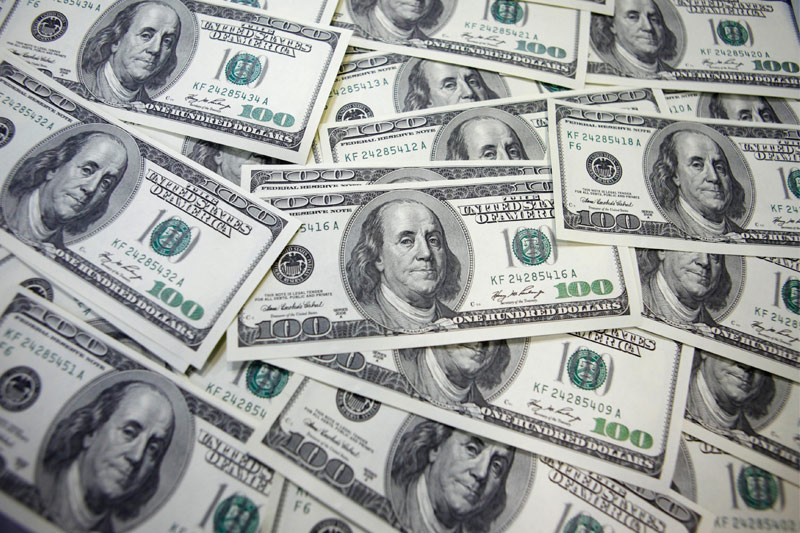By Peter Nurse
Investing.com - The dollar edged higher in Europe Friday, but was still heading for a lower week as traders made bets on an economic recovery from the Covid-19 pandemic.
At 3:05 AM ET (0805 GMT), the Dollar Index, which tracks the greenback against a basket of six other currencies, was up 0.1% at 90.243, but has dropped 0.6% this week.
USD/JPY was up 0.2% at 103.66, GBP/USD dropped 0.4% to $1.3673, on the back of weak retail sales figures, having risen earlier to a 2-1/2 year high of $1.3745 overnight, while the risk-sensitive AUD/USD was down 0.5% at 0.7728.
The dollar has been caught in a tug-of-war over the last few weeks.
Joe Biden was sworn in as the 46th president of the United States on Wednesday, and traders are seeing the change in administration as increasing the chances of increased stimulus given the incoming president has already proposed a $1.9 trillion Covid-19 relief bill.
This supported risk-on sentiment, to the detriment of the greenback, as traders were prepared to buy riskier currencies on the idea of a quicker than previously expected global economic recovery.
However, the idea of greater borrowing to fund this additional stimulus and what this could mean to inflation and the Federal Reserve’s ultra loose monetary stance resulted in rising U.S. Treasury yields, helping the dollar.
That said, Thursday’s weekly jobless claims number fell only slightly last week, following on from the weak nonfarm payrolls figure earlier in the month. This signaled pandemic-related strains in the U.S. labor market remain, and the Federal Reserve will remain accommodative for some time.
Elsewhere, EUR/USD dropped 0.1% to 1.2159, but the pair is still up around 0.7% this week.
The European Central Bank held interest rates unchanged on Thursday, as widely expected given it delivered a hefty easing package only in December.
“The main focus was on the comments on the currency,” said ING analyst Petr Krpata, noting that ECB President Christine Lagarde added that the central bank is ‘’very attentive’’ to foreign exchange developments.
“While we don’t rule out further verbal interventions or even a policy reaction in response to currency strength, for this to happen the euro would have to strengthen sharply and meaningfully first.”
